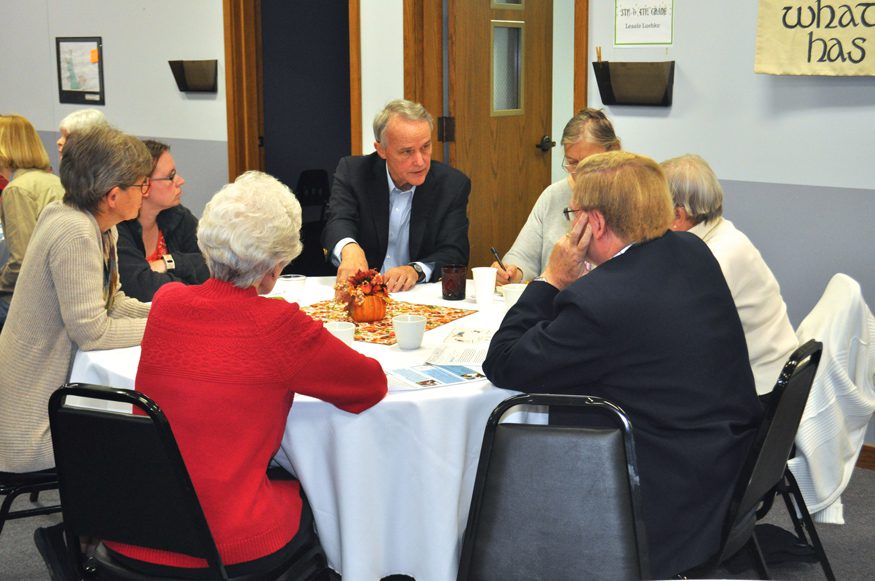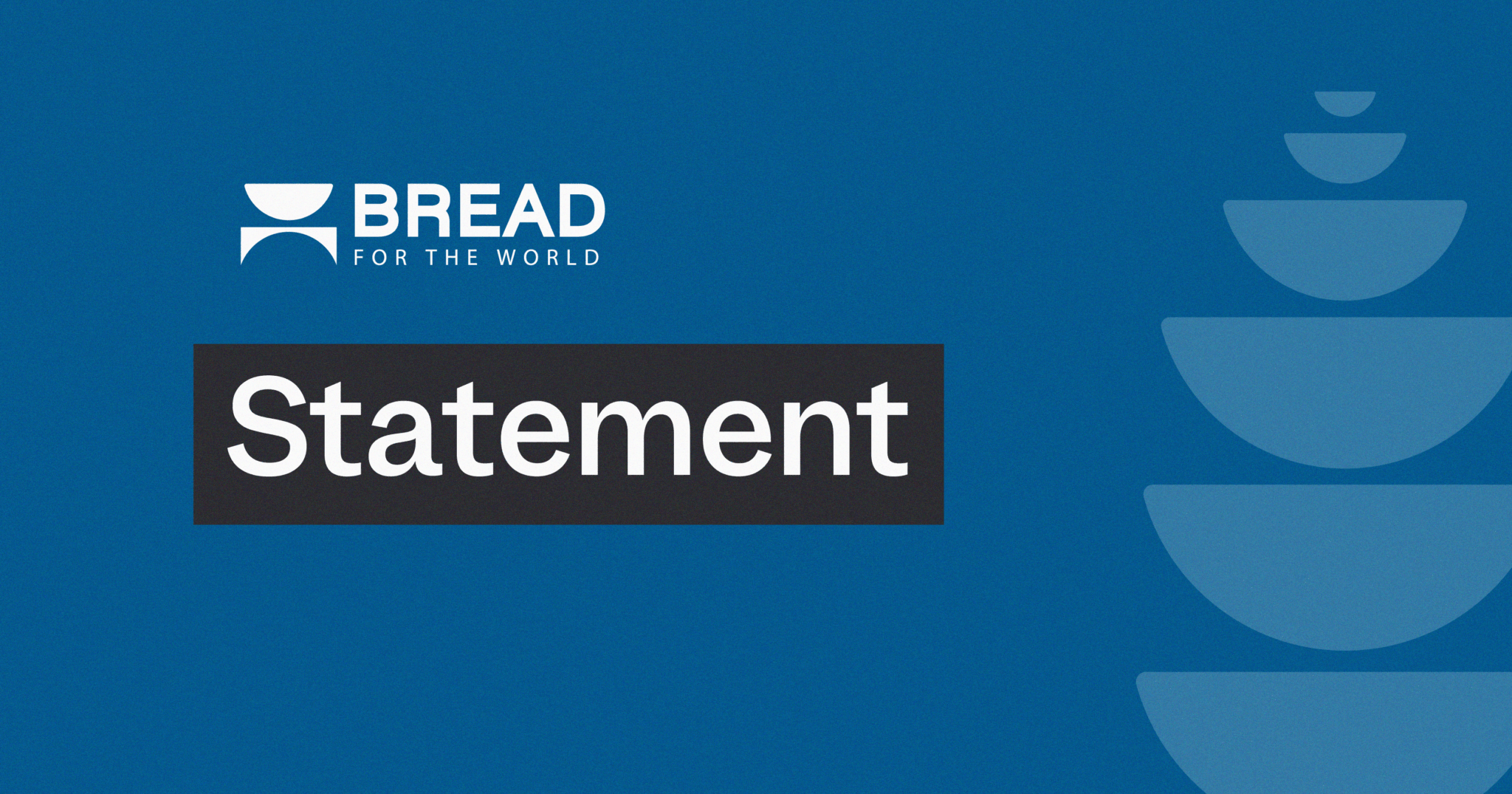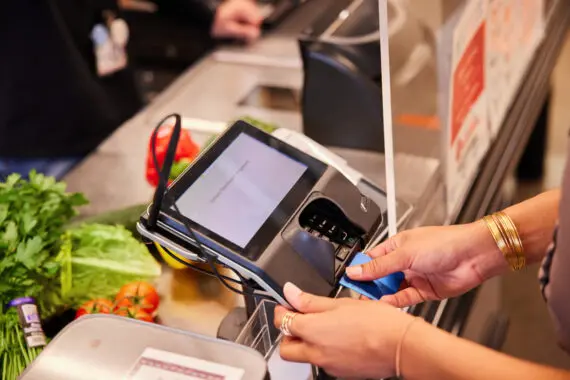By Robin Stephenson
Bread leaders know that to build the political will to end hunger, we need to grow our grassroots base. When enough constituents in a state or district speak in unison, their lawmakers—who often have re-election foremost on their minds—listen and respond. To increase those constituent voices, leaders need to start at home.
In October, Iowa leaders Rev. Russell Melby and Stephen Panther used the World Food Prize event, which takes place each year in Des Moines, and a visit from Bread’s president, Rev. David Beckmann, as an opportunity to build an Iowa Bread team. To do so, they coordinated a house meeting.
A house meeting is a gathering of people for the purpose of building relationships, identifying common concerns, and stimulating interest in further involvement. Sixty-five people came to the meeting held at St. James Lutheran in Johnston, Iowa.
“We thought we could piggyback off the World Food Prize event,” Melby said. “The house meeting created an environment to meet new people who were interested in ending hunger. Once we understood more of what they wanted, we could give them a place to plug in and affect change.”
Unlike a presentation, where speakers talk at an audience, house meetings are interactive and use shared stories as a way to identify interest and further engagement.
Matt Gross, interim co-director of organizing at Bread for the World, says house meetings are an effective way to grow Bread for the World. “People trust people,” he said. “Think about it: Many of us got involved in social justice because we had a passionate and committed friend who invited us to join them in this work.”
The meeting at St. James Lutheran began with a 20-minute speech by Beckmann and then the 65 participants broke into smaller groups and were given prompts—such as ‘why did you come’—to start conversations.
Gross said smaller groups are sometimes better but it depends on the circumstance. ‘The key elements of a house meeting are providing next steps—action people can take, like organizing an in-district meeting—and then following up,” he said.
Melby and Panther are now having one-on-one conversations with the participants. They will host a conference call at the end of the year with everyone who wants to engage further. The goal of that call will be to plan a collective action in 2018 that can influence their members of Congress around hunger issues.
Bread for the World is founded on the idea that we are more powerful together. We have won victories for poor and hungry people in our 40 years of existence because people acted for a common cause. We must increase our numbers as we face a challenging future in our quest to end hunger and there is no better place to start than at home.
If you are interested in learning more about house meetings, contact your organizer or email [email protected].
Robin Stephenson is senior manager for social media at Bread for the World.



